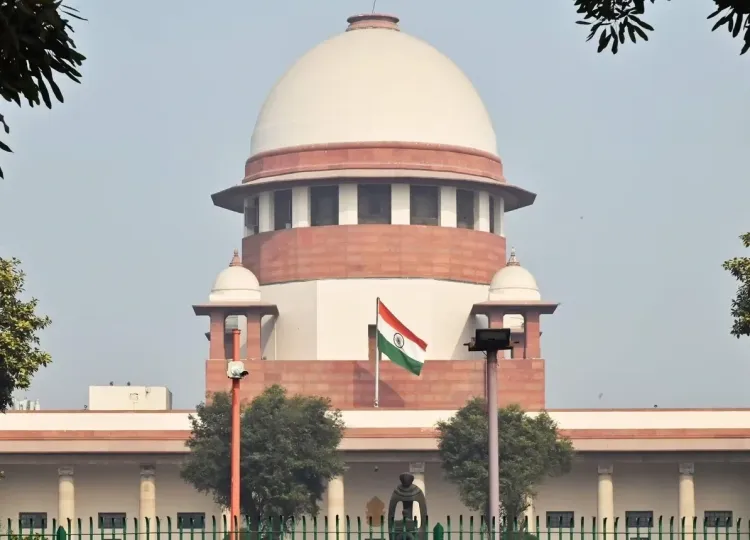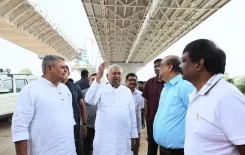Will the Supreme Court Address the Plea of Journalists Assaulted by MP Police Over Reports of 'Illegal Sand Mining'?

Synopsis
On June 9, the Supreme Court will deliberate on a plea from Madhya Pradesh journalists alleging police assault linked to their investigation of illegal sand mining. Their claims of abuse raise critical questions regarding press freedom and police accountability in India. This case underscores the dangers faced by journalists in reporting sensitive issues.
Key Takeaways
- Supreme Court to hear plea from assaulted journalists.
- Case highlights serious concerns over press freedom.
- NHRC has requested a report from police authorities.
- Journalists allege police involvement in illegal activities.
- Importance of protecting journalists in a democratic society.
New Delhi, June 8 (NationPress) The Supreme Court is set to consider on Monday a petition submitted by two journalists from Madhya Pradesh who were reportedly assaulted and mistreated under the direction of Bhind's Superintendent of Police due to their coverage of illegal sand mining activities in the Chambal river.
According to the causelist available on the apex court's website, a panel consisting of Justices Prashant Kumar Mishra and Manmohan will continue the hearing on June 9.
Earlier, a bench led by Justices Sanjay Karol and Satish Chandra Sharma had issued a notice regarding the writ petition from journalists Shashikant Jatav and Amarkant Singh Chouhan, yet refrained from granting any temporary order to shield them from potential coercive actions.
Justice Karol emphasized the necessity of presenting facts from the Madhya Pradesh government before any interim order could be issued.
He queried, "If someone commits a severe offense like murder, can we provide an order against coercive action? We lack clarity on the charges filed against you." The apex court also urged the petitioners’ counsel to include Bhind’s SP as a party to the case.
The journalists asserted that they had to escape their hometown due to escalating threats following their revelations of ‘illegal’ sand mining in the Chambal river, which they allege was conducted with the complicity of local police.
In their writ petition to the Supreme Court, the journalists identified IPS officer Asit Yadav and his team as central figures in the alleged abuse, claiming this targeting is a retaliatory action resulting from their investigative efforts. They reported instances of custodial assault, caste-based abuse, kidnapping, and ongoing harassment from the Bhind police.
Simultaneously, the National Human Rights Commission (NHRC) has also taken notice of the violent treatment of the two journalists, who are reportedly facing significant threats to their safety and freedom from the Bhind police.
The NHRC has issued a notice to the Madhya Pradesh Director General of Police (DGP), requesting a comprehensive report on the situation within a fortnight. Notably, the NHRC acknowledged a press release from the Press Club of India, highlighting that if the statements are accurate, they indicate a grave violation of the human rights of the affected journalists.






